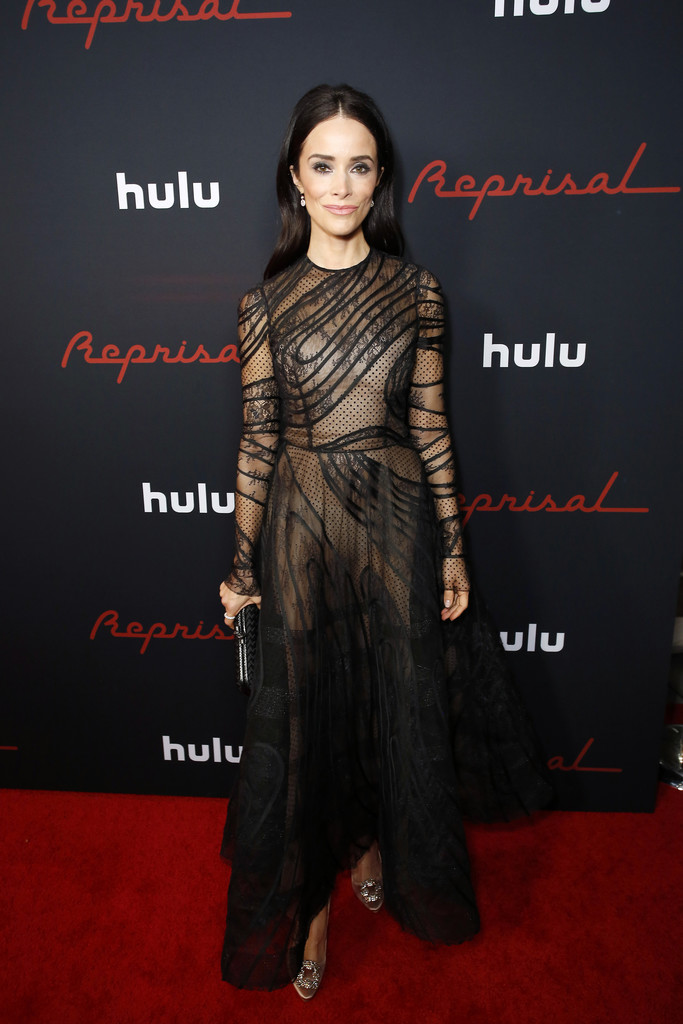Is the world of celebrity leaks a mere fabrication or an unfortunate reality? A bold statement must be made: the unauthorized release of private content involving public figures like Abigail Spencer has become a recurring issue, sparking widespread debate about privacy rights in the digital age. This phenomenon raises critical questions about consent, ethics, and accountability in our increasingly interconnected world.
Abigail Spencer, whose career spans both television and film, found herself entangled in one such controversy when explicit images allegedly linked to her were disseminated online without her permission. The incident occurred amidst what became known as The Fappening, a large-scale iCloud hack that exposed intimate photos of numerous celebrities in 2014. While some dismissed these leaks as hoaxes, others pointed to credible evidence linking them to genuine breaches of security. Regardless of authenticity, the fallout underscored vulnerabilities inherent in cloud storage systems and highlighted the urgent need for robust cybersecurity measures.
| Bio Data & Personal Information | Career & Professional Information |
|---|---|
| Name: Abigail Spencer Date of Birth: April 23, 1981 Place of Birth: Dallas, Texas, USA Nationality: American Education: Attended Southern Methodist University |
Profession: Actress Notable Works: Rectify (TV series), Suits (TV series), This Is Where I Leave You (film) Awards: Multiple nominations for acting excellence Social Media: Active on platforms like Instagram [Official Profile] |
Reports suggest that the leaked material attributed to Abigail Spencer included scenes from her work in films such as This Is Where I Leave You and other projects where she appeared partially clothed or engaged in dramatic performances requiring physical vulnerability. These instances often blurred the line between artistic expression and exploitation, complicating discussions around whether such releases constituted invasion of privacy or merely showcased professional contributions misinterpreted by malicious actors.
Adding fuel to the fire was speculation regarding the origins of these leaks. Some attributed them directly to hacking activities conducted by individuals with nefarious intent, while others suggested insider involvement within production teams responsible for managing sensitive footage during filming processes. Regardless of source, the proliferation of unauthorized content across various websites—including those specializing in adult entertainment—highlighted systemic failures in safeguarding personal information against unauthorized access.
Federal authorities took swift action following reports of widespread data breaches affecting prominent actresses like Jennifer Lawrence, Christina Hendricks, Hope Solo, and Abigail Spencer herself. In October 2014, FBI agents raided the residence of Emilio Herrera in Chicago, seizing multiple computing devices believed connected to illegal operations targeting celebrities' private accounts. Although arrests followed, many victims expressed frustration over perceived inadequacies in legal frameworks addressing digital intrusions into their lives.
Meanwhile, social media played a dual role throughout this saga. Platforms served as conduits for spreading harmful content but also provided spaces where affected parties could voice concerns and mobilize support networks advocating for justice. Public reactions ranged from outrage over violations of basic human dignity to dismissive attitudes minimizing the significance of stolen images compared to broader societal issues. Yet, consensus emerged among experts emphasizing the importance of fostering awareness about digital hygiene practices and promoting legislative reforms aimed at protecting individual privacy rights.
In response to mounting pressures, tech giants like Apple implemented enhanced encryption protocols designed to thwart future attacks. However, critics argued that reactive measures alone would prove insufficient unless accompanied by proactive strategies prioritizing user education alongside technological advancements. Moreover, calls intensified for greater transparency concerning corporate policies governing data management practices impacting millions worldwide daily.
As time passed, attention shifted away from specific cases involving high-profile personalities toward broader implications surrounding privacy protection in an era dominated by rapid technological evolution. Lessons learned from incidents implicating Abigail Spencer and others contributed significantly to ongoing dialogues shaping contemporary approaches toward balancing innovation with respect for personal boundaries online. Despite lingering challenges, progress continues toward establishing frameworks ensuring equitable treatment under law regardless of fame or fortune.
Ultimately, the saga underscores fundamental principles underscoring humanity's relationship with technology today. It serves as a stark reminder of potential consequences arising from misuse of powerful tools capable of transforming society for better—or worse—depending upon choices made collectively moving forward. As we navigate complexities associated with living digitally interconnected lives, remembering stories like Abigail Spencer's remains essential lest history repeat itself unnecessarily once more.



